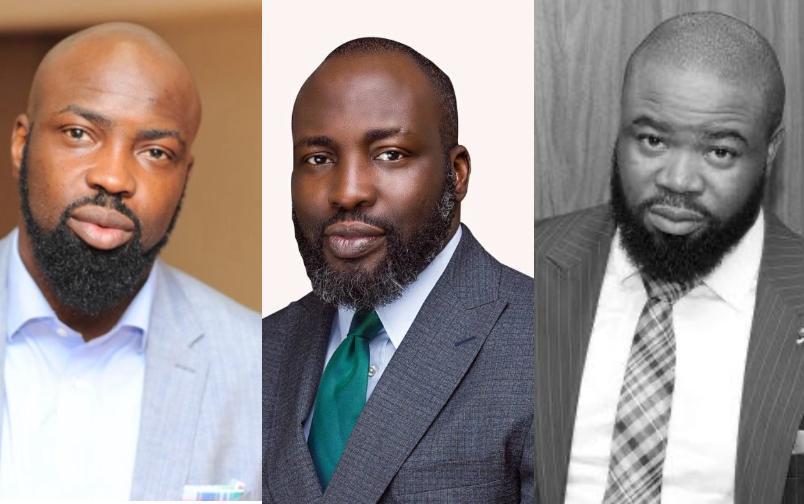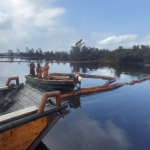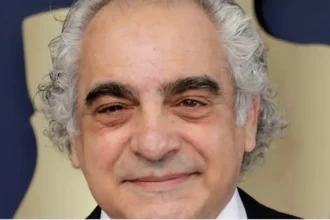...To get all news updates, Join our WhatsApp Group (Click Here)
Also Join our WhatsApp Channel (Click Here)
Chocolate City’s trouble is a fallout of a recent judgement of a High Court in London.
A leading Nigerian music company, Chocolate City, may lose as much as 60 per cent of its equity to an international partner, WEA International, a subsidiary of New York-based Warner Music Group (WMG).
This is a fallout of a judgement of the Commercial Division of a High Court in London on a loan dispute between the parties.
The judgement bars Chocolate City from prepaying a $1.7 million loan it took from the American record label ahead of the loan’s due date in 2024, while also affirming the lender’s right to choose to be paid back with 60 per cent of the borrower’s shares.
The judgement, delivered on 16 November, affirmed that WEA/WMG has the right to either choose to accept the payment with full interest at the due date or convert the loan to 60 per cent of Chocolate City’s shares.
The High Court’s decision put an end to the move by Chocolate City to exit the loan obligations early, to preempt the lender from taking the option of demanding 60 per cent of its shares as a means of offsetting the loan.
Chocolate City had sought to prepay the loan in 2022, whereas the loan has a term of five years, from 2019 to 2024.
In his judgement, a copy of which was obtained by PREMIUM TIMES, the judge, David Foxton, ruled that prepayment of the facility before the due date was not envisaged under the agreement the parties signed.
“There is no right to pay off any negative balance under the ADA Distribution Agreement before the Maturity Date or termination of the Facility (implicitly under clause 17.21),” the judge said.
Chocolate City, founded in 2005 by Audu Maikori, Paul Okeugo and Yahaya Maikori, obtained the loan in issue from WEA under a contractual agreement they entered into on 27 March 2019.
According to the court judgement, the agreement signed by the parties was for $1.8 million ($1,832,500) ‘Convertible Term Loan Facilities’.
A convertible loan is one which will either be repaid or, in most cases, converted into equity at a future date. It is a form of financing that ordinarily takes less time than an equity funding round, which can be costly and time-consuming.
The loan obtained from WMG was to be “payable in full or convertible into 60 per cent of the equity interests” of Chocolate City.
Promising deal
At the promising beginning of the deal, on 28 March 2019, a day after the agreement was signed, Warner Music Group (WMG) announced a pioneering partnership with Chocolate City.
Under the partnership listed on its official website, Chocolate City artistes would join WMG’s repertoire and receive the support of the company’s distribution and artiste services via its independent label services division, Alternative Distribution Alliance (ADA).
At the time, WMG said that the partnership with Chocolate City would dramatically grow the reach of African artistes worldwide and create new opportunities for global superstars in the region.
Under the terms of the deal, music from the label’s artistes would join Warner Music’s repertoire, and they would receive the support of the company’s global expertise, including distribution and artiste services via ADA.
WMG also promised financial support for Chocolate City to help achieve its mission of signing and developing the best local talent in this fast-growing market.
Chocolate City loan agreement details
Details of the loan deal were reproduced in the court’s judgement on the dispute that later ensued between the parties.
The judge referenced some pre-contractual documents signed by the parties for a better understanding of the deal.
The judge said the pre-contractual documents are not legally binding but help shed light on the unclear details of the contract itself.
Some of the documents include the Letter of Interest (LOI) dated 15 August 2018 which was signed by Chocolate City and Warner Music Inc (of which WEA is a part).
There was also a non-binding Term Sheet dated 17 January 2019 signed by Chocolate City and WEA.
Certain correspondences were also cited by the judge as helping to establish the facts and details of the loan agreement.
From the Letter of Interest, the judge said, the agreement was designed for WMG or its affiliate(s) to provide financing to Chocolate City “in the form of a convertible note”.
The loan was to be “payable in full or convertible into 60 per cent of the equity interests” of Chocolate City.
The judge referenced an email dated 27 September 2018 which WMG sent to Chocolate City, explaining what the “convertible loan structure” that parties had been discussing entailed.
WMG explained in the email that at the end of the term loan, that is, after five years, the investor (WMG) would have “the option of accepting a return in the form of principal plus interest or equity in the company”.
In response to the clarification by WMG, the judge said while reviewing the documents filed by the parties to the case, Chocolate City responded by stating, “We are aligned”, and “We are happy to move ahead with the deal.”
In the Term Sheet which the parties also signed, it was stated under the ‘Proposed Transaction’ section that the transaction was an investment “by way of secured loan, convertible into equity in the Company at the Lender’s option at the Maturity Date.”
How dispute started
By 2022, Chocolate City had drawn down on the $1.8 million facility to $1.7 million.
Dispute between the parties over the facility began to rear its head when, on 8 September 2022, Chocolate City served a prepayment notice on WEA, indicating its decision to prepay the full amount of the loan together with accrued interests on or before 20 December 2022.
Citing Clauses 8.3(a) and (b) of the Facility Agreement, Chocolate City asserted its right to prepay the loan, and requested that WEA provide its bank details for prepayment to be made.
On 13 September 2022, WEA responded that Chocolate City was not entitled to make a prepayment. Therefore, WEA did not provide its bank details.
Chocolate City then filed an application in court for summary judgment seeking declarations to the effect that it is contractually entitled to prepay the amount outstanding under a convertible term loan facility ahead of the specified maturity date.
Chocolate City was represented by Nathan Searle and George Harnett of Hogan Lovells International LLP.
WEA, represented by Tamara Oppenheimer KC and Gillian Hughes of Dentons UK and Middle East LLP, cross-applied for summary judgment for a declaration that Chocolate City is not entitled to prepay the facility.
Citing Clause 7 of the loan agreement, WEA insisted that “the borrower shall repay the loans in full together with any interest accrued on the Maturity Date”.
Judgement
In his judgement, Mr Foxton ruled that prepayment of the facility before the due date was not envisaged under the agreement.
This finding, the judge said, tallies with WEA’s rights recognised in clause 7 of the facility up to the maturity date.
He said the clause “presupposes that the Facility will only be terminated on the Maturity Date or pursuant to early termination under clause 17.21.”
The judge, who said WEA’s interpretation of the agreement was more acceptable than Chocolate City’s, said he was satisfied that “the commercial purpose of the transaction” affirmed WEA’s construction of the agreement.
He said the loan agreement “gave WEA an embedded right to swap the outstanding debt for equity at the Maturity Date if it decided it was in its economic interests to do so.”
“That commercial purpose lends strong support to WEA’s construction, but Chocolate City’s construction would be inimical to it,” the judge said.
In conclusion, Mr Foxton noted that “Chocolate City does not have a real prospect of establishing a right to prepay the loan made to it by WEA, and WEA’s construction is correct. Chocolate City fails on its application for summary judgment, and WEA succeeds on its cross-application for summary judgment.”
Implication for Chocolate City
The judgement, affirming WEA/WMG’s interpretation of the agreement, gives the American conglomerate the discretion to accept payment in cash or convert the loan sum to 60 per cent of Chocolate City’s equity when the facility is due for repayment.
The judge ruled that it was at WMG’s sole discretion to decide whether all or a portion of the loan “be converted into an unrecouped balance under the Distribution Agreement”.

PT contacted Chocolate City’s CEO, Abuchi Ugwu, on the phone on Wednesday to find out if the company will appeal against the judgement or has other plans to avert losing a majority of its shares to its estranged partners. Mr Ugwu asked our correspondent to email the questions to him, but he has yet to respond to our email enquiry as of the time of filing this report.
Chocolate City has been home to recording artistes such as M.I Abaga, Nosa, Dice Ailes, Victoria Kimani, Ice Prince, DJ Caise, DJ Lambo, Jeremiah Gyang, Ruby Gyang, Pryse, Brymo, Koker, Jesse Jagz, Lemon Adisa, Mr Gbafun, Ijay, and Kahli Abdu, VHS Safari and more.
But the artistes currently on the label are Tariq, Noondave, YoungJohn, Blaqbonez, CandyBleakz and MajorAJ.
Source: Premium Times.
You can get every of our news as soon as they drop on WhatsApp ...To get all news updates, Join our WhatsApp Group (Click Here)
Also Join our WhatsApp Channel (Click Here)












